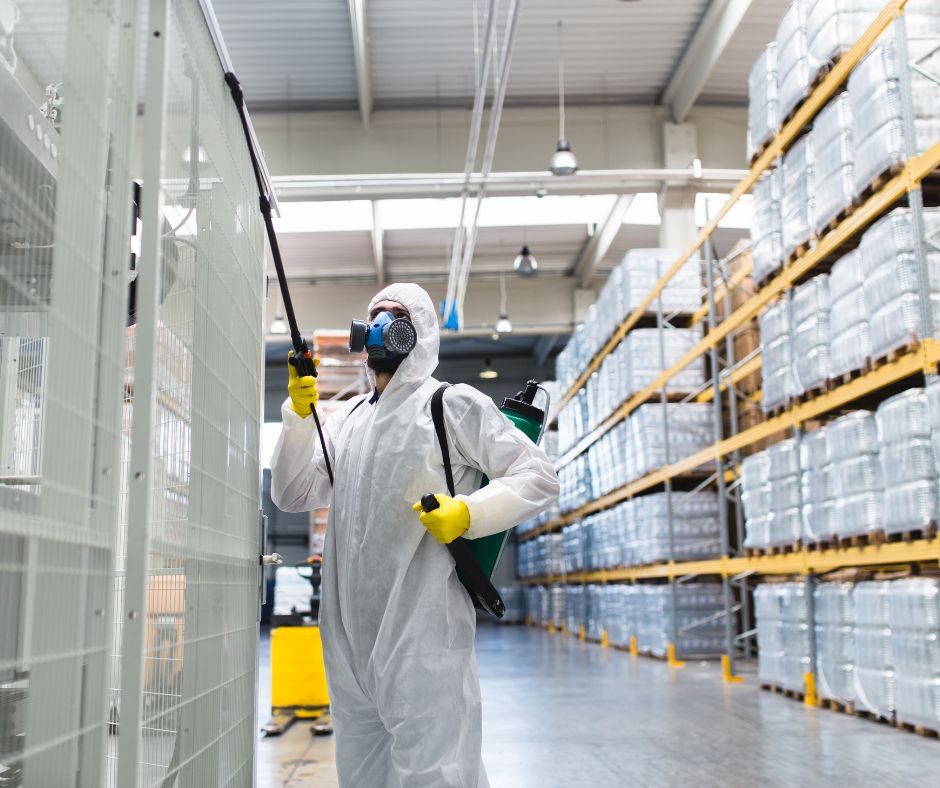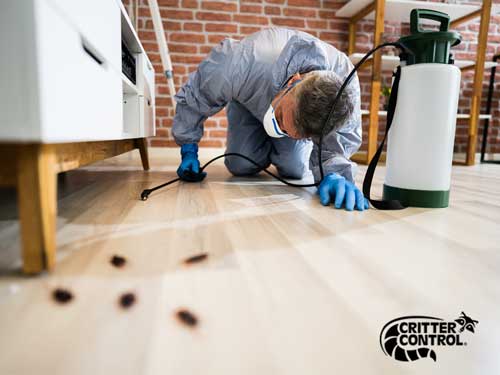Get Rid of Mosquitoes with Expert Mosquito Control Services in Port Charlotte
Wiki Article
Learn About the current Breakthroughs in Insect Control and How to Implement Efficient Treatment Solutions
In recent years, the field of insect control has experienced considerable improvements, driven by the requirement for sustainable and efficient treatment solutions. Innovative approaches such as Integrated Pest Monitoring (IPM) incorporate environmentally friendly methods with advanced modern technology, improving both effectiveness and environmental duty.Eco-Friendly Pest Control Options
In recent times, the need for green insect control alternatives has risen as property owners and services alike look for sustainable options to traditional chemical treatments. This shift is driven by expanding environmental understanding and a need to reduce the wellness risks connected with synthetic chemicals.

Green pest control techniques encompass a series of techniques that focus on the use of natural materials and techniques. Integrated Pest Management (IPM) is one such method, combining biological, cultural, and mechanical strategies to handle bug populaces while minimizing dependence on chemicals (Wildlife removal services). This alternative technique highlights prevention with habitat manipulation and the introduction of all-natural killers, consequently cultivating a well balanced ecological community
An additional prominent choice is using organic chemicals originated from plants, which have a tendency to be less dangerous to non-target microorganisms. Products like neem oil and diatomaceous earth have acquired grip for their efficiency in controlling pests while posing minimal dangers to human health and the setting.
Furthermore, exclusion strategies, such as securing entry points and keeping tidiness, play an important role in environmentally friendly pest monitoring. By taking on these sustainable practices, businesses and people can properly take care of insects while advertising a much healthier planet for future generations.
Smart Modern Technology in Parasite Monitoring
Development is improving the landscape of insect monitoring, with wise technology emerging as a pivotal pressure in enhancing effectiveness and performance - Wildlife removal services. The combination of Net of Things (IoT) devices, man-made intelligence (AI), and data analytics is revolutionizing exactly how parasite control professionals come close to infestations
Smart traps outfitted with sensors can identify pest activity in real-time, sending immediate notifies to drivers. This enables timely actions, decreasing damages and decreasing the demand for considerable treatments. Furthermore, AI formulas assess historic data to anticipate parasite actions, enabling proactive interventions based upon environmental conditions and invasion patterns.
Drones and automatic lorries are also playing a considerable function in pest management, offering airborne analyses of huge locations, recognizing hotspots, and also dispersing targeted treatments. These innovations not just streamline operations yet additionally enhance safety by limiting human direct exposure to possibly damaging chemicals.
Additionally, mobile applications equip consumers to keep track of insect activity and access specialist suggestions, cultivating a joint technique to pest monitoring. On the whole, the fostering of wise modern technology is establishing a new standard in pest control, stressing data-driven choices and sustainable methods that ultimately benefit both property owners and professionals alike.
Integrated Bug Management Strategies
Integrated Parasite Administration (IPM) employs a holistic method to pest control, combining numerous techniques to efficiently take care of bug populations while minimizing threats to human health and wellness and the environment. IPM focuses on comprehending the pest life cycle, their natural opponents, and the environment in which they thrive.Among the fundamental parts of IPM is checking pest populations through normal examinations and data collection. This enables the identification of pest limits, determining when treatment is required. Social practices, such as plant sanitation, habitat, and rotation adjustment, are essential in reducing insect frequency and promoting plant health and wellness.
Mechanical controls, including obstacles and catches, are also crucial in IPM. These techniques can physically remove or deter insects without making use of chemicals. When essential, the cautious application of chemical controls is utilized, concentrating on targeted therapies that lessen ecological influence.
Education and collaboration among stakeholders, consisting of farmers, parasite control professionals, and the neighborhood, are essential for the successful application of IPM approaches. By focusing on sustainable methods, IPM not just addresses pest concerns yet also fosters a healthier environment.
Biological Control Methods
Many organic control methods are increasingly acknowledged for their efficiency in handling insect populaces while promoting ecological equilibrium. These methods harness natural killers, parasites, and virus to lower pest numbers without relying upon artificial chemicals. The intro of ladybugs can successfully manage aphid populations, while nematodes target soil-dwelling insect larvae.Additionally, using microbial pesticides, such as Bacillus thuringiensis (Bt), gives an eco pleasant option for managing caterpillar pests. These products especially target pest species, lessening injury to advantageous bugs and pollinators. Preservation biological control emphasizes boosting environments for all-natural opponents, such as birds and advantageous pests, thereby urging their existence in farming systems.
Research study proceeds to expose innovative strategies within this field, such as making use of pheromones to interfere with pest mating patterns or the growth of biocontrol agents via genetic modification. Executing these approaches can cause lasting insect monitoring methods that mitigate the reliance on chemical treatments, eventually cultivating healthier ecological communities. As understanding of these techniques grows, they are becoming important components of integrated parasite management (IPM) methods, offering a balance in between reliable insect control and ecological stewardship.
Do It Yourself Bug Control Solutions
As homeowners seek reliable ways to tackle bug concerns, DIY bug control solutions have gotten appeal for their ease of access and cost-effectiveness. These techniques encourage individuals to resolve problems using readily available materials and methods, typically without the demand for specialist treatment.
Additionally, keeping proper cleanliness and routine inspections can avoid bug access and nesting (Wildlife removal services). Simple practices, such as sealing splits, getting rid of food resources, and decluttering, can considerably reduce bug populaces. Catches, both homemade and commercially available, can likewise offer efficient options for surveillance and controlling particular parasites like insects or rodents

Verdict
The integration of environment-friendly pest control options, smart innovation, and ingenious monitoring techniques provides a detailed method to reliable parasite monitoring. By welcoming Integrated Parasite Management (IPM) and utilizing biological control methods, along with do it yourself solutions, sustainable and responsible insect control can be achieved. These advancements not just boost the performance of parasite monitoring techniques yet likewise add to a healthier environment. Carrying out these methods promotes a balanced ecosystem while effectively addressing pest populaces.Environment-friendly insect control methods incorporate a variety of techniques that prioritize the usage of natural materials and methods. Integrated Insect Management (IPM) is one such strategy, incorporating biological, social, and mechanical strategies to take care of insect populaces while minimizing reliance on chemicals. As recognition of these methods grows, they are ending up being integral parts of integrated bug management (IPM) methods, providing a balance in between effective bug control and ecological stewardship.
The integration of green insect control alternatives, smart modern technology, and innovative administration strategies provides a thorough approach to efficient parasite management. By embracing Integrated Parasite Management (IPM) and using organic control techniques, along with DIY services, accountable and sustainable bug control can be attained.
Report this wiki page